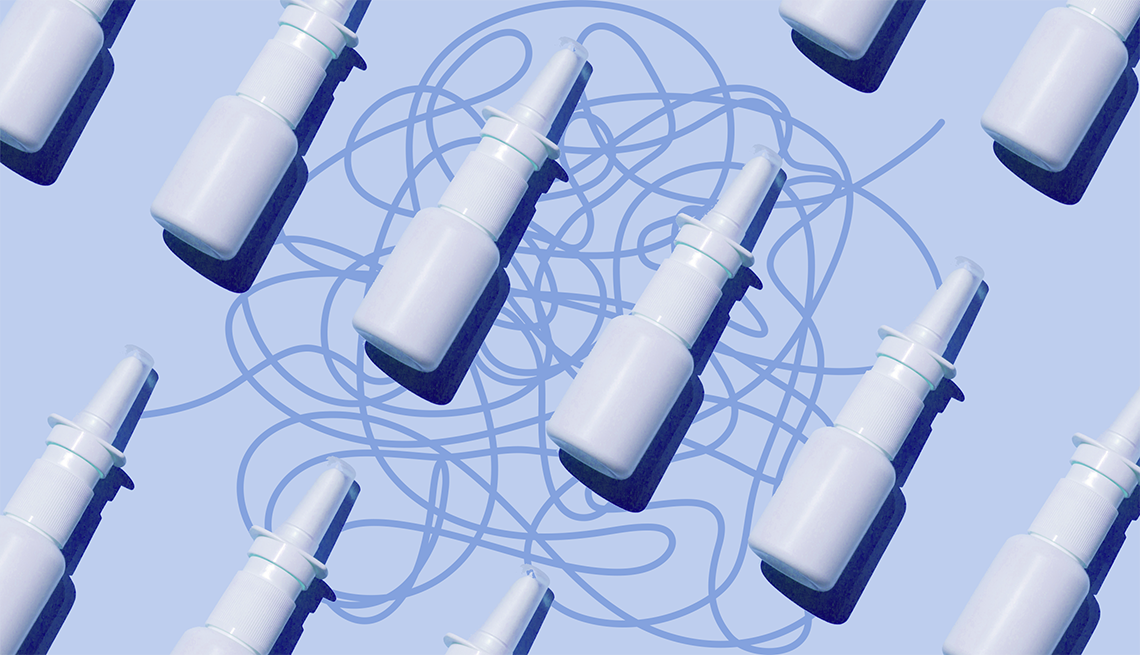Staying Fit


If you routinely reach for nasal spray to unclog your stuffy nose, you may start to wonder if the product you once relied on to deliver relief is actually doing the opposite.
Many nasal spray users have experienced this phenomenon, known as rebound congestion, which health experts say can occur with routine use of certain — not all — types of nasal sprays. It’s estimated that up to 9 percent of patients visiting ear, nose and throat specialists (ENTs) have rebound congestion, though research suggests the condition may actually be more common given the number of over-the-counter nasal sprays that are so readily available.


AARP Membership— $12 for your first year when you sign up for Automatic Renewal
Get instant access to members-only products and hundreds of discounts, a free second membership, and a subscription to AARP the Magazine.
It typically occurs as a result of overuse or prolonged use of nasal decongestant sprays that contain the ingredients oxymetazoline or phenylephrine, says Nicholas Rowan, M.D., a rhinologist and associate professor at Johns Hopkins School of Medicine in the Department of Otolaryngology — Head and Neck Surgery.
“These medications work by constricting blood vessels in the nasal passages, providing immediate relief from nasal congestion and blockage,” Rowan says. “With prolonged use, however, the nasal passages can become tolerant to the medication’s effects. As the body becomes tolerant, it requires higher doses to achieve the same level of relief.”
This need for more is not an addiction by definition — that would imply the nasal sprays cause functional changes to the pleasure-reward circuits in the brain. But overusing certain sprays can create a physical dependence.
Here’s what you need to know.
Nasal decongestant sprays and rebound congestion
If the flu, a sinus infection or the common cold is to blame for your stuffed-up nose, a nasal decongestant spray can help unstuff it by shrinking blood vessels in the nasal passages, making it easier for you to breathe. However, if you use a decongestant spray for more than three days in a row, it’s no longer able to do its job.
Worse, when you stop using it, your nasal passages begin to swell again, which is like a calling card for your congestion to return, prompting you to reach for the nasal spray.
“Prolonged use of nasal decongestant sprays can cause the blood vessels in the nasal passages to become increasingly sensitive and reactive,” Rowan says. “When the medication wears off, the blood vessels dilate, leading to even more severe nasal congestion than before, perpetuating a cycle of dependency on the decongestant.”


































































More on Health
Are You Using Your Neti Pot Correctly?
Never practice nasal rinsing with tap water, experts sayHave the Flu? Here's What You Need to Do
Plus, what not to do when you’re sickTry These Tips for Living a Healthier Life
Small changes can add up to big mental and physical results
Recommended for You